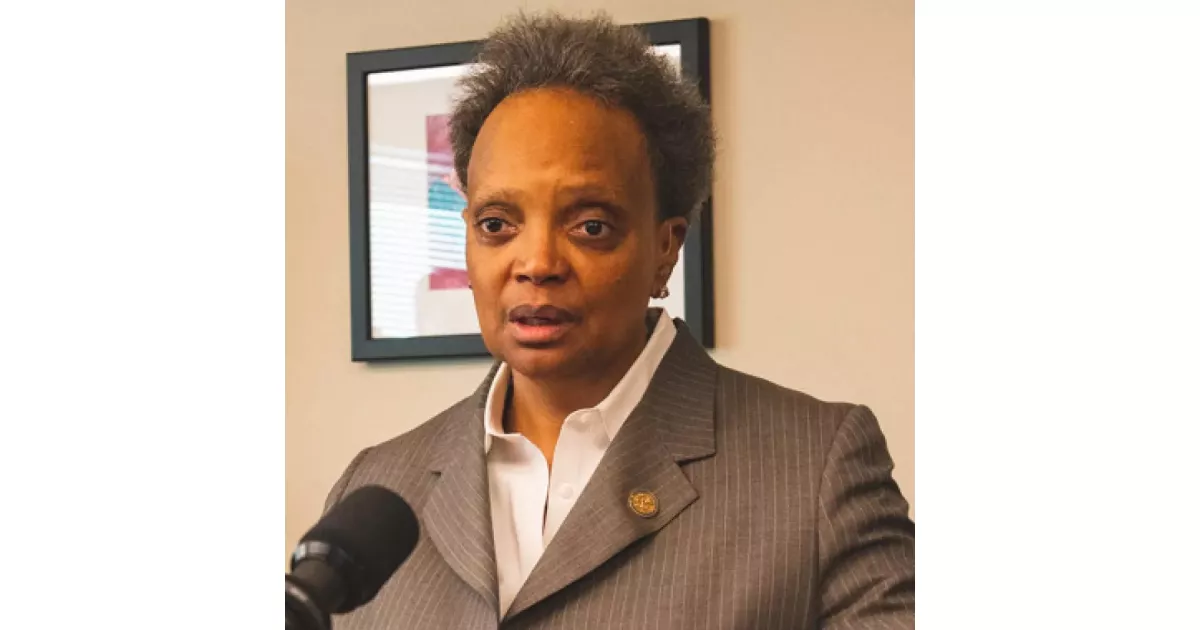Lori Elaine Lightfoot is an American politician and attorney who served as the 56th mayor of Chicago from 2019 to 2023. A Democrat, she previously worked in private legal practice and held several government positions, including president of the Chicago Police Board. Lightfoot gained national attention when she won the 2019 mayoral election, becoming the first African American woman and openly LGBTQ person to hold the office. However, she lost her bid for reelection in 2023, failing to make the runoff and becoming the first incumbent Chicago mayor since 1983 to be unseated after a single term.
August 4, 1962: Lori Lightfoot Born
On August 4, 1962, Lori Elaine Lightfoot was born. She would later become the 56th mayor of Chicago.
1983: Jane Byrne Failed Re-election
In 1983, Jane Byrne failed re-election for mayor of Chicago. Since then, Lori lightfoot would become the next incumbent mayor to fail re-election in 2023.
1984: Graduated from the University of Michigan
In 1984, Lori Lightfoot received her Bachelor of Arts in political science from the University of Michigan, graduating with honors.
1989: Graduated from University of Chicago Law School
In 1989, Lori Lightfoot graduated from the University of Chicago with her Juris Doctor degree.
1999: Issued Warning for Misconduct
In 1999, Lori Lightfoot was issued a warning for misconduct by judge Richard Posner in a case where she was found to have misled a judge regarding a suspect's whereabouts.
2002: Appointed Chief Administrator of the Chicago Police Department Office of Professional Standards
In 2002, Lori Lightfoot was appointed chief administrator of the Chicago Police Department Office of Professional Standards by Police Superintendent Terry Hillard.
2013: Finalist for U.S. Attorney Position
In 2013, Lori Lightfoot was a finalist for the position of U.S. Attorney for the Northern District of Illinois, but the job went to Zachary T. Fardon.
2013: Named "Distinguished Citizen"
In 2013, Lori Lightfoot's high school alumni association named her a "Distinguished Citizen".
May 31, 2014: Lightfoot marries Amy Eshleman
On May 31, 2014, Lori Lightfoot married Amy Eshleman, a former Chicago Public Library employee.
2015: Appointed President of Chicago Police Board
In 2015, Lori Lightfoot was appointed president of the Chicago Police Board by Mayor Rahm Emanuel.
2016: Police Accountability Task Force Report
In 2016, the Police Accountability Task Force, led by Lori Lightfoot, filed a report critical of the Chicago Police Department's practices.
2017: Re-appointed as Police Board President
In 2017, Rahm Emanuel re-appointed Lori Lightfoot to a second term as president of the Police Board.
May 10, 2018: Announced Candidacy for Mayor of Chicago
On May 10, 2018, Lori Lightfoot announced her candidacy for mayor of Chicago in the 2019 elections.
May 2018: Resigned from the Police Board
In May 2018, Lori Lightfoot resigned from the Police Board, shortly before announcing her mayoral campaign.
2018: Highest-Funded Campaign Challenging Incumbent Mayor
By summer 2018, Lori Lightfoot had the highest-funded campaign of any individual challenging the two-term incumbent mayor, Rahm Emanuel.
April 2, 2019: Won Runoff Election
On April 2, 2019, Lori Lightfoot won the runoff election, becoming mayor-elect of Chicago.
April 6, 2019: Examined Lincoln Yards Agreement
On April 6, 2019, Lori Lightfoot told the Chicago Sun-Times that her staff would spend time examining the city's agreement with Sterling Bay regarding the Lincoln Yards development.
May 20, 2019: Took Office as Mayor of Chicago
On May 20, 2019, Lori Lightfoot officially took office as mayor of Chicago.
May 28, 2019: Unveiled Proposals to Revise City Council Operating Rules
On May 28, 2019, Lori Lightfoot unveiled proposals to revise the Chicago City Council operating rules, including live streaming committee meetings and strengthening conflict of interest rules.
May 31, 2019: Called for Alderman Burke's Resignation
On May 31, 2019, after indictments were brought against Alderman Edward M. Burke, Lori Lightfoot called for his resignation.
June 5, 2019: Outlined Further Ethics Reform Proposals
On June 5, 2019, Lori Lightfoot outlined further ethics reform proposals for the city council.
June 2019: Lightfoot launches community policing initiative
In June 2019, Lightfoot launched a community policing initiative and announced that the Chicago Police Department would not assist ICE raids.
June 2019: Lightfoot selected as grand marshal of Chicago Pride Parade
In June 2019, Lightfoot was selected as one of the grand marshals of the Chicago Pride Parade.
October 14, 2019: Announced Affordable Housing Task Force
On October 14, 2019, Lori Lightfoot announced the creation of an affordable housing task force to study solutions to housing affordability.
November 8, 2019: Lightfoot names Charlie Beck as interim superintendent
On November 8, 2019, after Eddie T. Johnson announced his resignation, Lightfoot named Charlie Beck as the interim superintendent of the Chicago Police Department.
November 13, 2019: Lightfoot proposes ordinance to create Office of Public Safety Administration
On November 13, 2019, Lightfoot proposed an ordinance to create a new Office of Public Safety Administration, combining administrative functions of Chicago Police Department, the Chicago Fire Department and the Office of Public Safety Administration.
November 23, 2019: Chicago City Council approves Lightfoot's minimum wage increase plan
On November 23, 2019, the Chicago City Council approved Lightfoot's plan to increase the minimum wage to $15 an hour by 2021, excluding restaurant servers and tipped workers.
November 26, 2019: Chicago City Council Approves Lightfoot's Budget
On November 26, 2019, the Chicago City Council approved Lightfoot's budget for the 2020 fiscal year.
2019: Campaign for Mayor
In 2019, Lori Lightfoot announced her candidacy for mayor of Chicago, her first-ever run for public office.
2019: Elected Mayor of Chicago
In 2019, Lori Lightfoot defeated Toni Preckwinkle in a runoff election and became the 56th mayor of Chicago.
2019: Defended Police Officer and Faced Criticism
In 2019, Lori Lightfoot faced criticism for defending Chicago police officer Paul Powers against charges of physical assault.
2019: Speculation of Mayoral Run
In 2019, there was already speculation that Lightfoot was planning a run for mayor of Chicago.
March 6, 2020: Named Tracey Scott as CEO of Chicago Housing Authority
On March 6, 2020, Lightfoot named Tracey Scott as CEO of the Chicago Housing Authority.
March 11, 2020: Postponed Saint Patrick's Day Festivities
On March 11, 2020, Lori Lightfoot joined Illinois Governor J. B. Pritzker to postpone the city's formal Saint Patrick's Day festivities due to the COVID-19 pandemic.
March 12, 2020: Lightfoot bans events of over 1,000 people
On March 12, 2020, Lori Lightfoot joined Governor Pritzker to issue a ban on events attended by more than 1,000 people, effective for the next 30 days, to combat the spread of COVID-19.
March 20, 2020: Lightfoot extends school closures and issues public health order
On March 20, 2020, Mayor Lightfoot extended Chicago Public School closures beyond the state mandate and issued a public health order prohibiting residents diagnosed with or exhibiting symptoms of COVID-19 from leaving their residence, with exceptions for essential services.
March 31, 2020: Lightfoot secures hotel rooms for first responders
On March 31, 2020, Lightfoot announced securing 300 hotel rooms for first responders to prevent them from spreading COVID-19 to their families, and also collaborated to establish a makeshift hospital at McCormick Place.
April 2, 2020: Lightfoot nominates David Brown as superintendent of police
On April 2, 2020, Lightfoot nominated David Brown to be superintendent of police. Brown became acting superintendent on April 15, pending confirmation.
July 2020: Directed Removal of Columbus Statue
In July 2020, Lori Lightfoot directed that a statue of Christopher Columbus be removed from Grant Park.
March 2022: Sued for Defamation
In March 2022, attorney George Smyrniotis sued Lori Lightfoot for defamation related to the removal of the Columbus statue.
May 5, 2022: Selected Bally's Corporation for Casino Resort
On May 5, 2022, Lori Lightfoot announced that she had selected a bid from the Bally's Corporation to construct a casino resort on the west bank of the Chicago River.
February 28, 2023: Lightfoot fails to qualify for mayoral run-off
On February 28, 2023, Lightfoot finished third in the mayoral election and failed to qualify for the run-off election.
April 4, 2023: Brandon Johnson prevails in mayoral run-off
On April 4, 2023, Brandon Johnson won the mayoral run-off election, with Lightfoot being the only eliminated candidate not to endorse either candidate.
2023: Failed Re-election Bid
In 2023, Lori Lightfoot ran for re-election but failed to qualify for the runoff, becoming the first incumbent Chicago mayor to not be re-elected since 1983.
Mentioned in this timeline
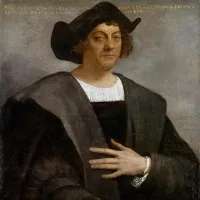
Christopher Columbus an Italian explorer and navigator completed four voyages...
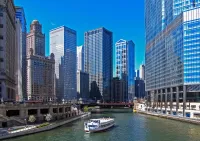
Chicago is the most populous city in Illinois and the...
Illinois is a Midwestern U S state bordering Lake Michigan...
Michigan is a peninsular state in the Great Lakes region...

Fire is a rapid oxidation process called combustion releasing heat...
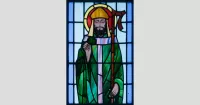
Saint Patrick's Day observed annually on March th commemorates the...
Trending

24 minutes ago Priyanka Chopra stuns in Dior and Gaurav Gupta at 'The Bluff' premiere.
24 minutes ago Puerto Vallarta: Vehicle Fires and Roadblocks Disrupt Sunday Morning
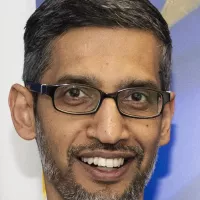
24 minutes ago Sundar Pichai envisions AI's transformative potential, focusing on India and global connectivity.

24 minutes ago Rhys Hoskins Reportedly Set to Join Cleveland Guardians After Phillies Departure.

25 minutes ago Tate McRae stuns in Victoria's Secret dress, linked to Jack Hughes.

25 minutes ago Norah O'Donnell highlights unsung heroines in "We the Women" and celebrates Women's History.
Popular

Jesse Jackson is an American civil rights activist politician and...

Barack Obama the th U S President - was the...

Bernie Sanders is a prominent American politician currently serving as...

Ken Paxton is an American politician and lawyer serving as...

Michael Joseph Jackson the King of Pop was a highly...
WWE Raw a professional wrestling television program by WWE airs...
